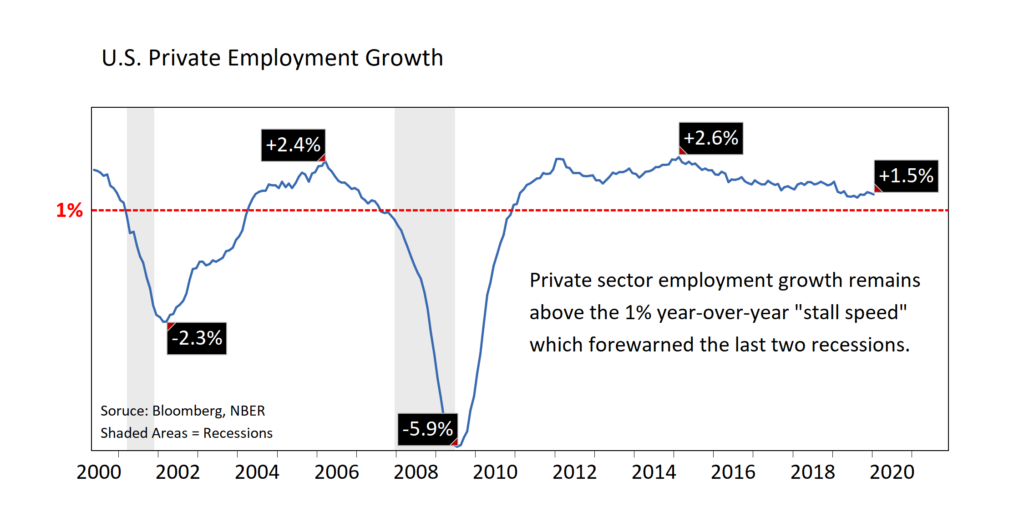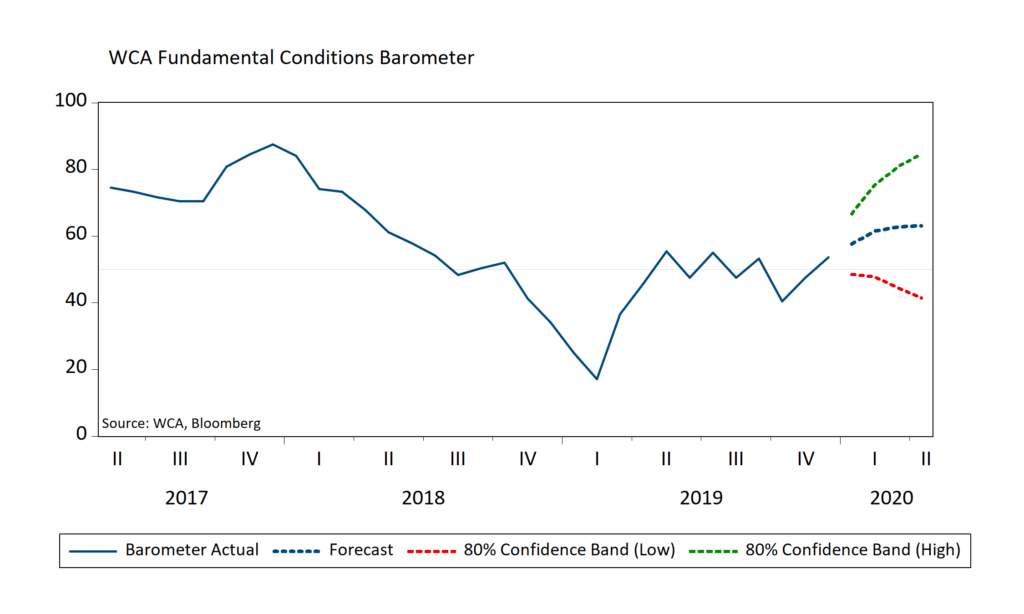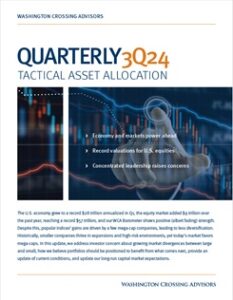The Coronavirus Factor
The outbreak, centered within China’s industrial heartland, is upending life and closing business across many parts of China. According to a report from CNBC, 20 Chinese provinces covering 80% of Chinese GDP, and 90% of exports are under some form of lockdown. Further complicating the situation is the timing of the Chinese New Year festival from January 25 through February 8. Because many businesses usually close during the festival, several years ago, China’s National Bureau of Statistics decided to combine January and February data reports into a single month and release the information in mid-March. In other words, much of the official data on manufacturing and industry will be unavailable for at least several more weeks, further complicating matters.
Commodities and Emerging Markets
In anticipation of slowdown, global commodity prices are down almost 10%, which hurts some emerging economy producers of copper, steel, and other raw materials. At the same time, these lower costs could provide some benefit to commodity consuming industries such as building and infrastructure, mechanical equipment, and automobile manufacturers selling outside of China.
Inventories Are Lean
Should demand from the U.S. and other major economies remain steady, the potential also exists for a jump in future production to accommodate restocking of inventories. Domestically, private stocks have declined 90% from a year ago, according to the Bureau of Economic Analysis. According to the Institute for Purchasing Managers, manufacturing inventories have been contracting since June. Lean inventory levels create a potential for above-trend future production, provided demand holds up.
Solid Data Trends in the United States
Last week’s employment report, for example, showed stability. Private employment was up 1.5% from a year earlier, well above the 1% “stall speed” that foreshadowed the last two recessions (chart A, below). Moreover, most market-based indicators also point to continued growth. Earnings forecasts are gaining traction, market breadth is solid, the U.S. Treasury curve is no longer inverted, there are few signs of stress within the banking system, and corporate credit spreads are holding steady and are below average. Other than a small drop in commodity prices, there is little sign that the coronavirus is interrupting business as usual in the United States. Even our WCA Fundamental Conditions Index (chart B, below) is offering some tentative, hopeful signs. Since last summer, the index has been bouncing up and down around neutral (50) readings. The recent uptick in our forecast path leads us to increase equity exposure versus bonds.
Chart A

Chart B

Conclusion
So it is clear that although the coronavirus could take a bite out of global growth in the near-term, growth could bounce back sharply later this year for three reasons. First, fears of escalating trade wars have diminished, and most global central banks are adding liquidity. Second, inventory levels are already lean. Third, and most important, the most recent incoming data from the United States continues to point to steady growth despite evolving concerns over the coronavirus.
The closure of large parts of China’s business sector due to the coronavirus is likely to create near-term challenges for some parts of the globe. Yet, there are also strong reasons to believe that an underlying pickup in global growth could be in the offing. More time will be necessary to assess the impact of the coronavirus on the world and the world’s economy.
Kevin Caron, CFA, Senior Portfolio Manager
Chad Morganlander, Senior Portfolio Manager
Matthew Battipaglia, Portfolio Manager
Steve Lerit, CFA, Client Portfolio Manager
Suzanne Ashley, Analyst
(973)
549-4168
www.washingtoncrossingadvisors.com
www.stifel.com
Disclosures
WCA Fundamental Conditions Barometer Description: We regularly assess changes
in fundamental conditions to help guide near-term asset allocation decisions.
The analysis incorporates approximately 30 forward-looking indicators in
categories ranging from Credit and Capital Markets to U.S. Economic Conditions
and Foreign Conditions. From each category of data, we create three
diffusion-style sub-indices that measure the trends in the underlying data.
Sustained improvement that is spread across a wide variety of observations will
produce index readings above 50 (potentially favoring stocks), while readings
below 50 would indicate potential deterioration (potentially favoring bonds).
The WCA Fundamental Conditions Index combines the three underlying categories
into a single summary measure. This measure can be thought of as a “barometer”
for changes in fundamental conditions.
The information contained herein has been prepared from sources believed to be reliable but is not guaranteed by us and is not a complete summary or statement of all available data, nor is it considered an offer to buy or sell any securities referred to herein. Opinions expressed are subject to change without notice and do not take into account the particular investment objectives, financial situation, or needs of individual investors. There is no guarantee that the figures or opinions forecasted in this report will be realized or achieved. Employees of Stifel, Nicolaus & Company, Incorporated or its affiliates may, at times, release written or oral commentary, technical analysis, or trading strategies that differ from the opinions expressed within. Past performance is no guarantee of future results. Indices are unmanaged, and you cannot invest directly in an index.
Asset allocation and diversification do not ensure a profit and may not protect against loss. There are special considerations associated with international investing, including the risk of currency fluctuations and political and economic events. Investing in emerging markets may involve greater risk and volatility than investing in more developed countries. Due to their narrow focus, sector-based investments typically exhibit greater volatility. Small-company stocks are typically more volatile and carry additional risks since smaller companies generally are not as well established as larger companies. Property values can fall due to environmental, economic, or other reasons, and changes in interest rates can negatively impact the performance of real estate companies. When investing in bonds, it is important to note that as interest rates rise, bond prices will fall. High-yield bonds have greater credit risk than higher-quality bonds. The risk of loss in trading commodities and futures can be substantial. You should therefore carefully consider whether such trading is suitable for you in light of your financial condition. The high degree of leverage that is often obtainable in commodity trading can work against you as well as for you. The use of leverage can lead to large losses as well as gains.
All investments involve risk, including loss of principal, and there is no guarantee that investment objectives will be met. It is important to review your investment objectives, risk tolerance, and liquidity needs before choosing an investment style or manager. Equity investments are subject generally to market, market sector, market liquidity, issuer, and investment style risks, among other factors to varying degrees. Fixed Income investments are subject to market, market liquidity, issuer, investment style, interest rate, credit quality, and call risks, among other factors to varying degrees.
This commentary often expresses opinions about the direction of market, investment sector, and other trends. The opinions should not be considered predictions of future results. The information contained in this report is based on sources believed to be reliable, but is not guaranteed and not necessarily complete.
The securities discussed in this material were selected due to recent changes in the strategies. This selection criterion is not based on any measurement of performance of the underlying security.
Washington Crossing Advisors LLC is a wholly-owned subsidiary and affiliated SEC Registered Investment Adviser of Stifel Financial Corp (NYSE: SF).



